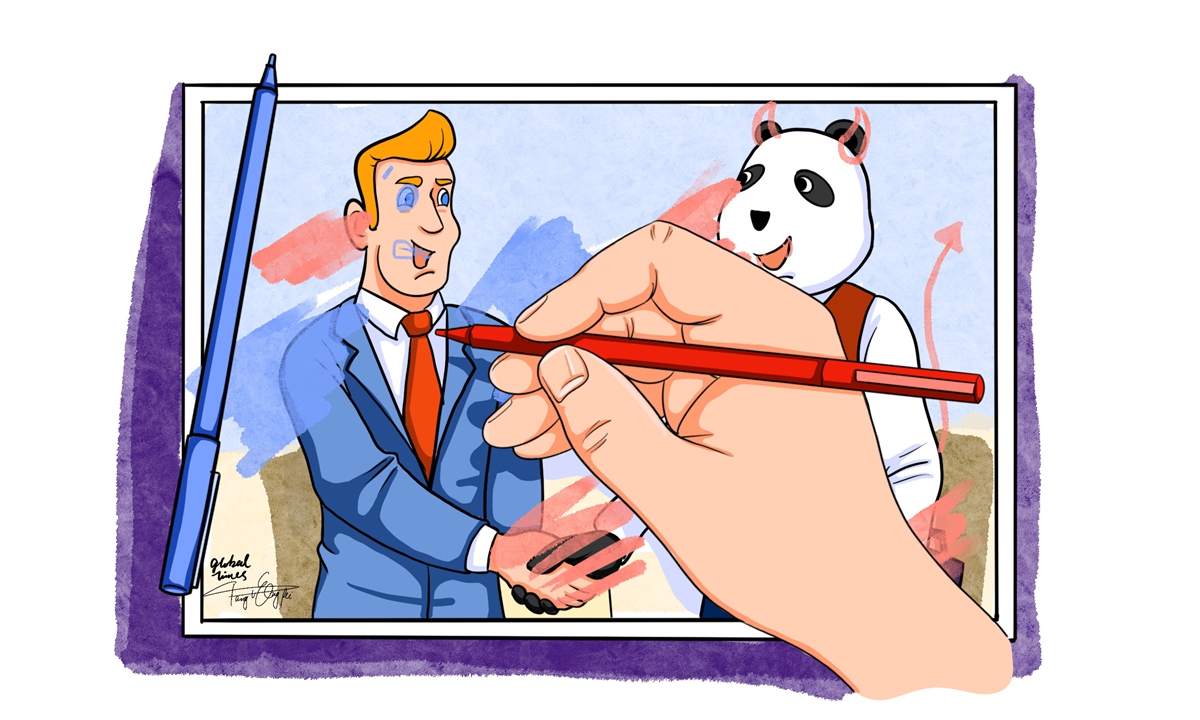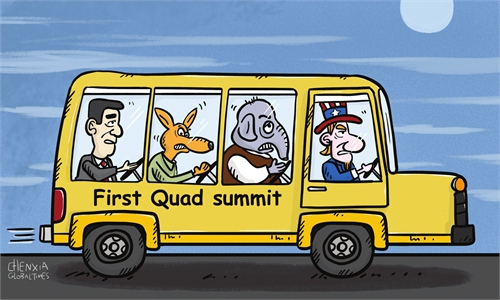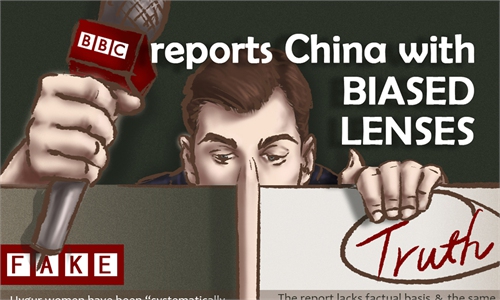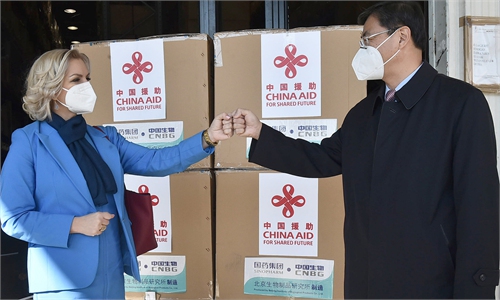COMMENTS / EXPERT ASSESSMENT
Paranoid hype on 'Stockholm syndrome' is the root of the affliction of Western firms

Illustration: Tang Tengfei/GT
In an extremely paranoid opinion piece published on Wednesday, Jamil Anderlini, Asia Editor for Financial Times (FT), criticized successful Western companies operating in the Chinese market of "succumbing to Stockholm syndrome," a phenomenon in which the victim develops positive feelings or sympathy for its captor. The author accused these companies of adopting a hostage mindset and fearful of antagonizing China.
In addition to blaming Western multinationals in China of hypocrisy and pushing them to take a side between China and the Western camp, the op-ed article made a bunch of groundless accusations against China's business environment, including so-called intellectual property theft, intrusive surveillance and threat of exit bans.
The article didn't stop the absurd argument attacking Western companies, and even pointed finger at sovereign state New Zealand's recent independent approach in diplomacy to distance itself from US-led anti-China clique.
It is nothing more than another baseless smear against China, full of political bias while void of facts and evidence. It does sound bizarre to portray successful, moneymaking companies in China as hostages. Anderlini's inappropriate analogy made to smear China has apparently gone too far. Instead, these successful companies should be seen as beneficiaries.
The reason why Western companies such as Volkswagen, Apple, Nike, Intel, and H&M have built successful operations in the Chinese market is a result of both their good management, as well as a fair and regulated business environment, rather than simply "toe China's line" as the article said.
How is exactly the business environment in China? These companies, which operated in the market for years or even decades, have the most say, not Western politicians and the media outlets.
With surging investment, Western multinationals have demonstrated their recognition on China's commitment in expanding opening-up and improving business environment. As the COVID-19 took toll on global economy in 2020, China surpassed the US to become the largest destination of foreign investment last year.
And there is no shortage of evidence China has been taking concrete efforts in all aspects to improve its business environment. A recent survey showed that the social satisfaction with China's intellectual property rights (IPR) protection has reached a record high of 80.05 percent, largely boosting confidence of international community.
As for why Western companies in China tend to blame politicians, media or human rights groups in their home countries for antagonizing China, the answer is crystal clear and is obviously not "succumbing to Stockholm syndrome."
Like Anderlini's opinion piece, Western anti-China force's smearing campaign has been searching for any items of negative news against China. When they are pushing their companies to take a side between China and Western camp or instigate them to antagonize China over political issues, they are hijacking their companies and sabotaging their businesses, which is the exact root of their affliction.
China is continuously expanding its opening-up, improving the protection of intellectual property rights, and creating a fair business environment. Western anti-China forces should respect their companies' right to choose markets independently. If they continue to use political pressure to force those companies to act against business interests, it only makes the situation of companies that have been hit by the pandemic more difficult, further hurting the entire business environment, and bringing greater disasters to the global economy.
The author is a vice chairman of the China Society for World Trade Organization Studies in Beijing. bizopinion@globaltimes.com.cn



